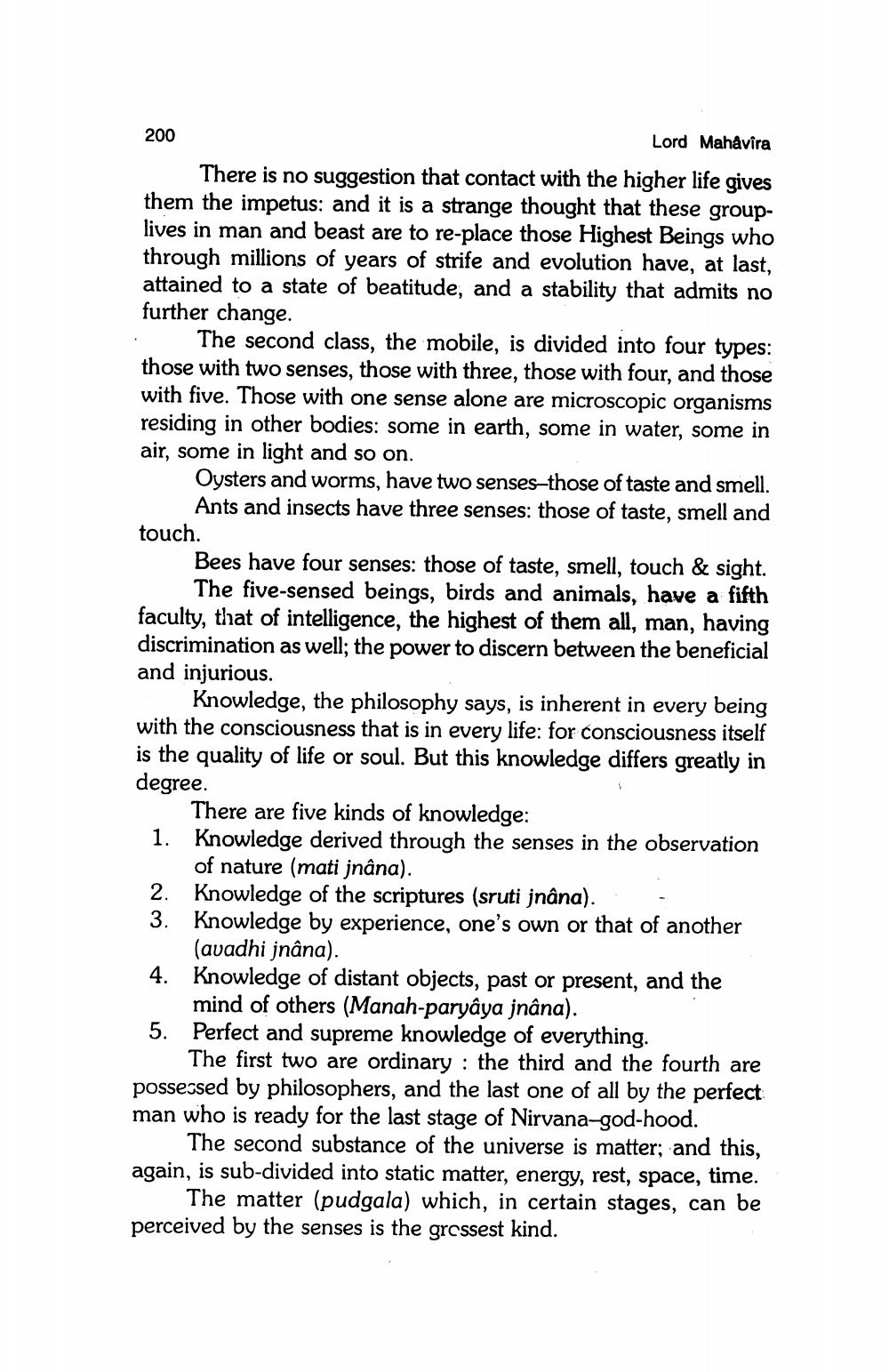________________
200
Lord Mahavira There is no suggestion that contact with the higher life gives them the impetus: and it is a strange thought that these grouplives in man and beast are to re-place those Highest Beings who through millions of years of strife and evolution have, at last, attained to a state of beatitude, and a stability that admits no further change.
The second class, the mobile, is divided into four types: those with two senses, those with three, those with four, and those with five. Those with one sense alone are microscopic organisms residing in other bodies: some in earth, some in water, some in air, some in light and so on.
Oysters and worms, have two senses-those of taste and smell.
Ants and insects have three senses: those of taste, smell and touch.
Bees have four senses: those of taste, smell, touch & sight.
The five-sensed beings, birds and animals, have a fifth faculty, that of intelligence, the highest of them all, man, having discrimination as well; the power to discern between the beneficial and injurious.
Knowledge, the philosophy says, is inherent in every being with the consciousness that is in every life: for consciousness itself is the quality of life or soul. But this knowledge differs greatly in degree.
There are five kinds of knowledge: 1. Knowledge derived through the senses in the observation
of nature (mati jnana). 2. Knowledge of the scriptures (sruti jnana). 3. Knowledge by experience, one's own or that of another
(avadhi jnana). 4. Knowledge of distant objects, past or present, and the
mind of others (Manah-paryâya jnana). 5. Perfect and supreme knowledge of everything.
The first two are ordinary : the third and the fourth are possessed by philosophers, and the last one of all by the perfect man who is ready for the last stage of Nirvana-god-hood.
The second substance of the universe is matter; and this, again, is sub-divided into static matter, energy, rest, space, time.
The matter (pudgala) which, in certain stages, can be perceived by the senses is the grossest kind.




